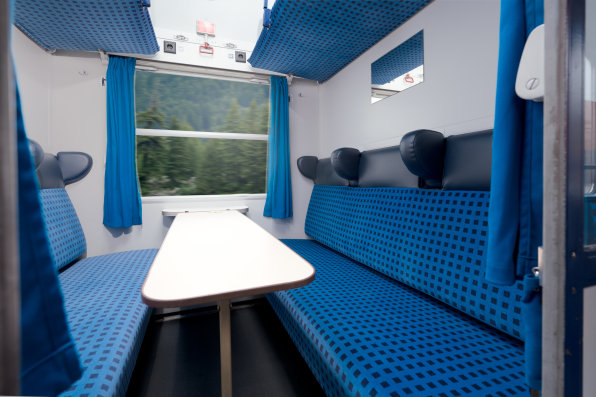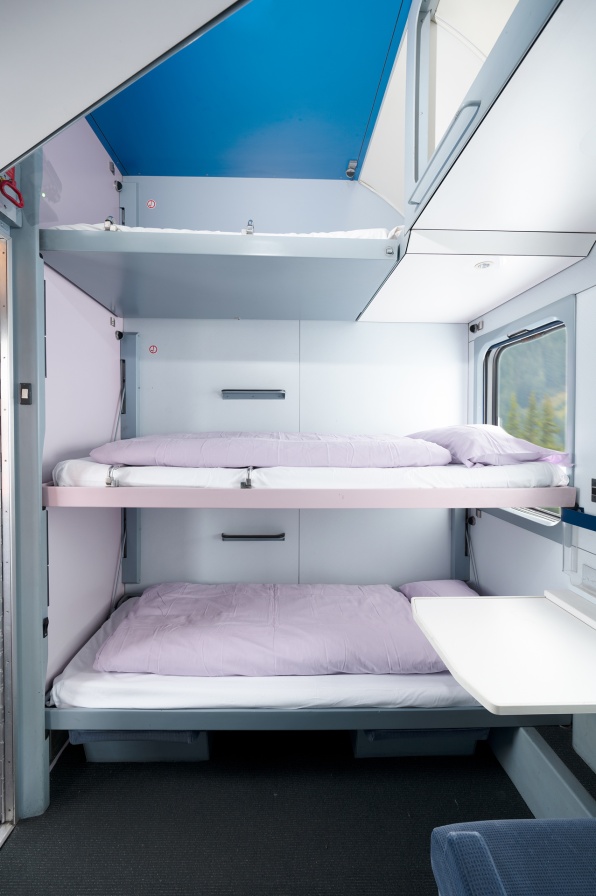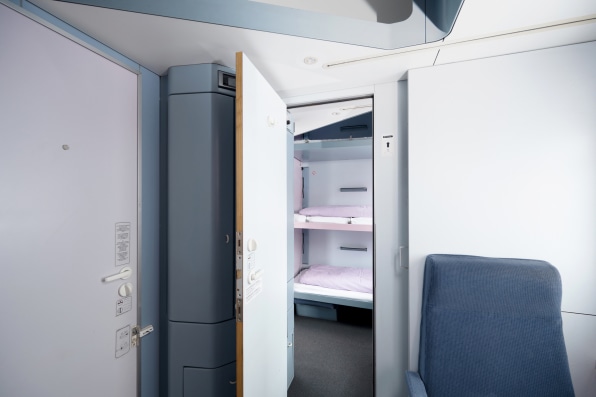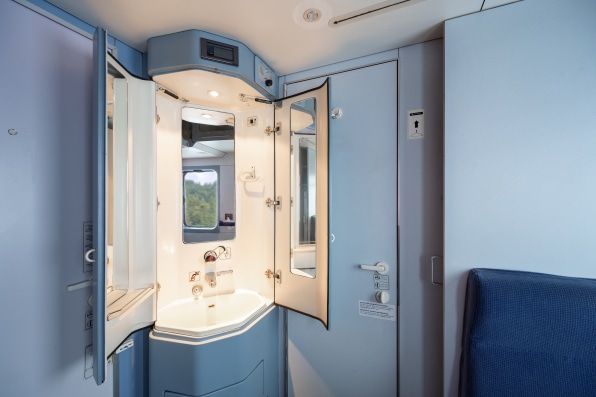[ad_1]
Millions of Americans will find themselves in Memorial Day traffic this weekend, inching toward an elusive beach or barbecue. Others will spend hours at the airport, navigating long lines and flight delays. In much of the country, the only ways to manage a weekend getaway is by car or by plane.
But there is an alternative, and it’s gaining steam in Europe: the humble sleeper train. This week, a startup night train, dubbed European Sleeper, is launching service between Brussels and Berlin, with stops along the way including Rotterdam and Amsterdam. Riders can book compartments with beds or seats, and are served breakfast in the morning following their roughly 470-mile journey.

“The night train is a pleasant way of traveling, and it’s quite time efficient,” says European Sleeper cofounder Chris Engelsman. “It’s also a bit of an adventure.”

Engelsman and his business partner, Elmer van Buuren, have structured European Sleeper as a crowdfunded cooperative, allowing them to leverage the support of the train-enthusiast community. In spring 2021, in just 15 minutes, they raised 500,000 pounds (more than $617,000) in seed capital from 350 backers. A year later, they raised another 2 million pounds ($2,469,950) in similar fashion.

Other European rail operators are also introducing new night-train routes, thanks to a push from policymakers looking to reduce the transport sector’s role in the climate crisis without burdening consumers with added cost. Traveling by night train, for example, can generate one-tenth the carbon emissions as an equivalent flight. For as little as 29.90 pounds ($36.93), passengers can now book a reintroduced sleeper route between Paris and Vienna. Countries, including Germany, are investing billions of dollars in their rail infrastructure.

“There’s been a real revival [in night trains], and the sustainability movement helps a lot,” Engelsman says.
European Sleeper grew out of a pilot of sorts that Engelsman conducted in 2019. As a one-off, he organized a train that ran for one night between the Netherlands and Berlin. Passengers didn’t get much sleep: There was a jazz festival on board, as well as a DJ, bars, and a restaurant. But the experience helped Engelsman learn the ins and outs of the rail business.
“It was a very good way to get a good understanding of what is needed to run a train,” he says. “You have to rent carriages, you have to apply for track access.”

He teamed up with van Buuren to develop European Sleeper shortly after, encouraged by the increase in government support for night trains.
At its start, European Sleeper will run three times a week in each direction, with a capacity of around 500 passengers. For dates in June, an overnight ticket from Brussels to Berlin in a compartment with six beds, known as a couchette, costs around 435 pounds ($537.21), including breakfast. Budget travel—6 oversize seats in a private compartment—costs about 289 pounds ($356.91), and the deluxe sleeper compartments, with three beds, are already sold out for dates through July.
During a recent trial run, many of the cooperative’s investors came along for the ride to offer feedback, from the linens to the breakfast service. They were happy, overall, Engelsman says. He’s hoping summer-season travelers starting to book their tickets now will agree.
[ad_2]
Source link

Comments are closed.